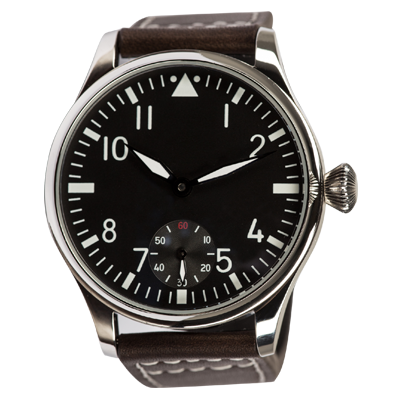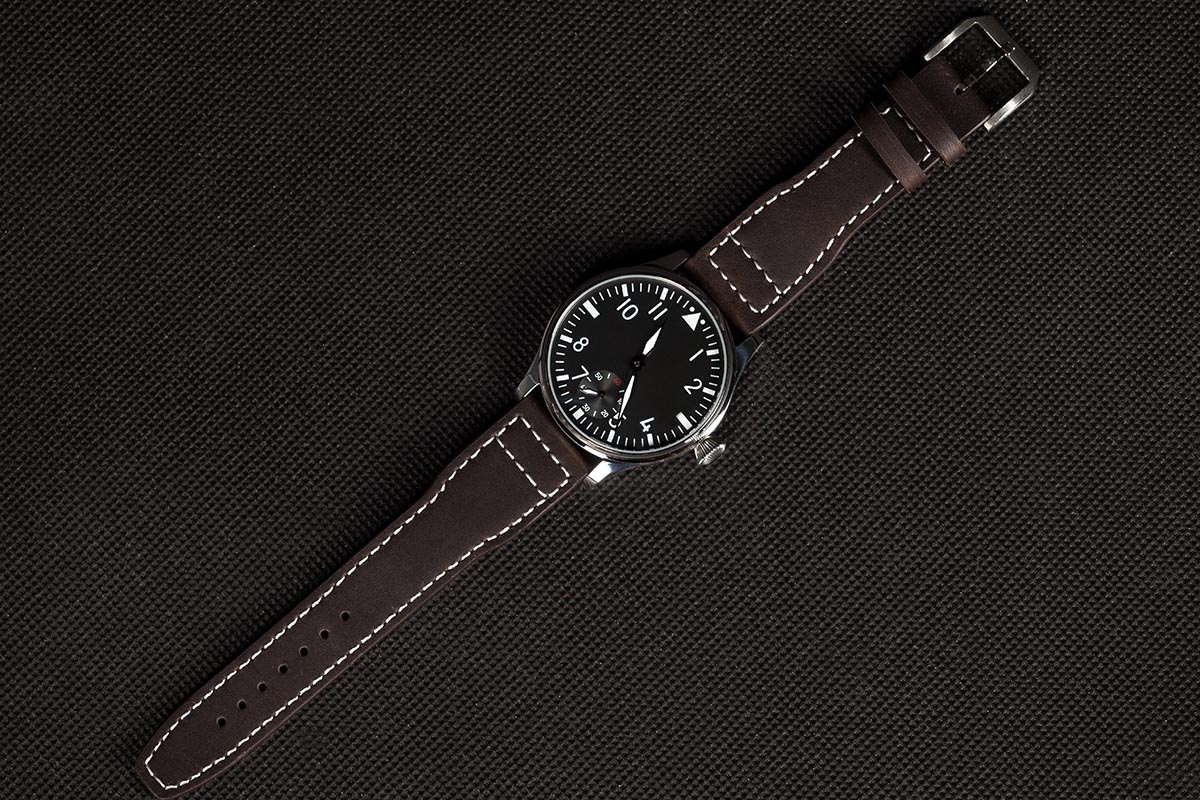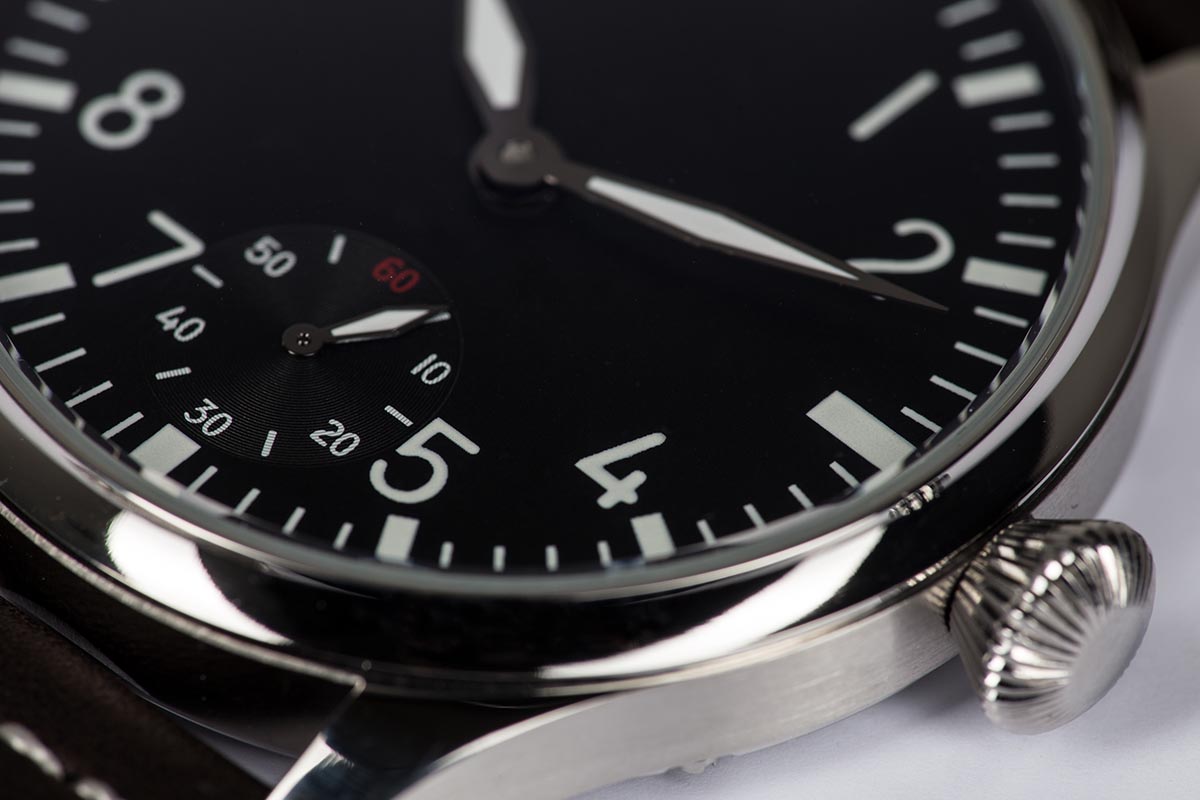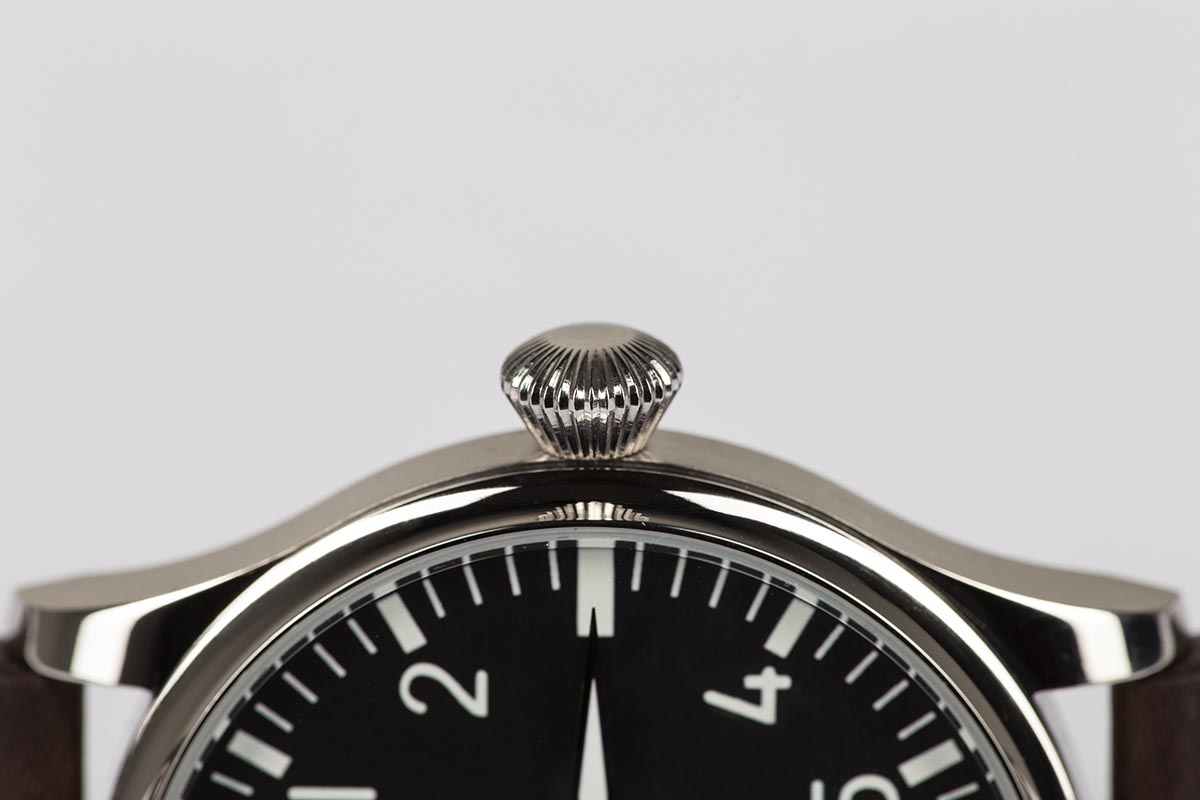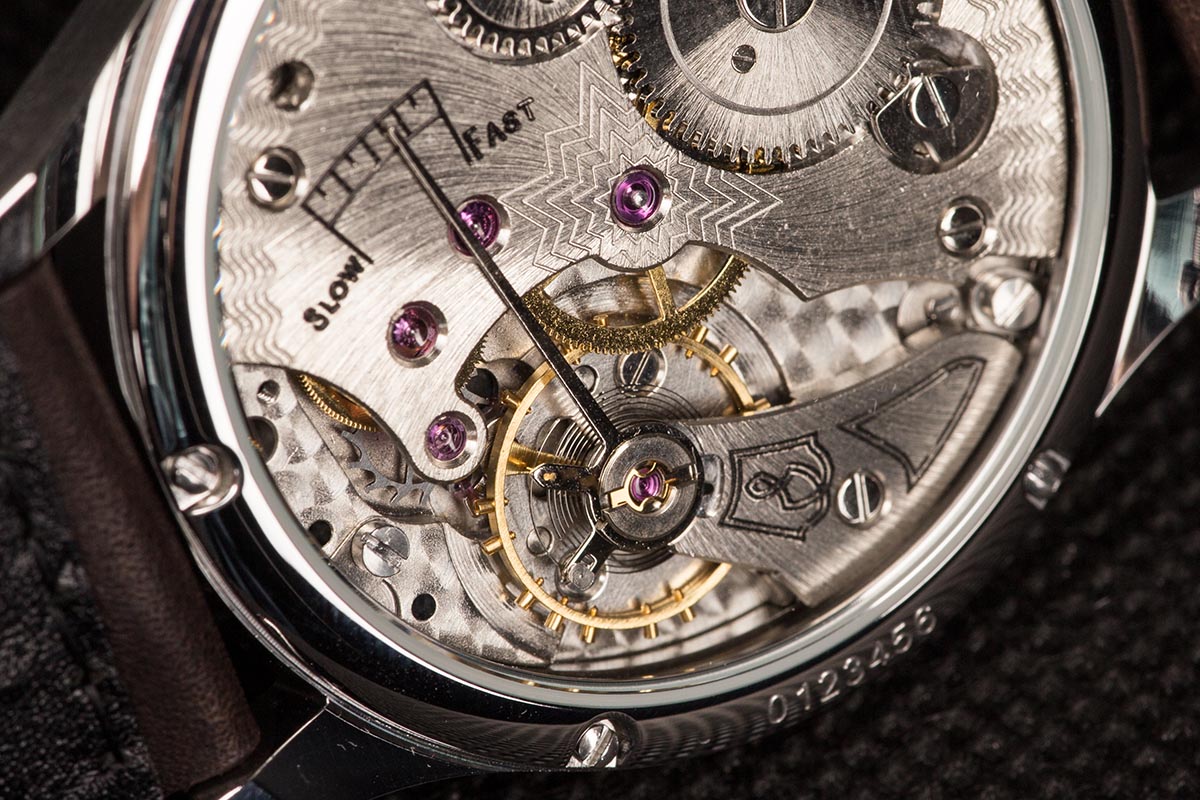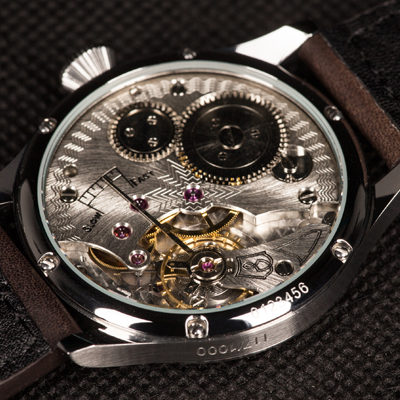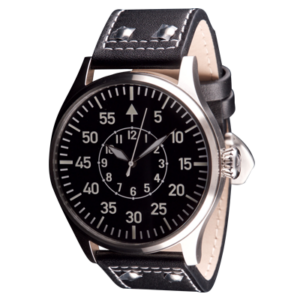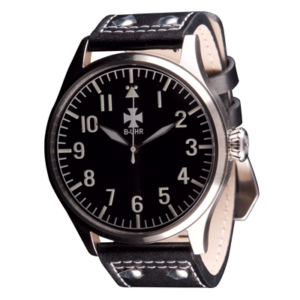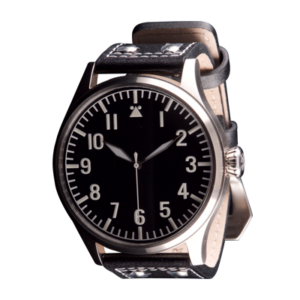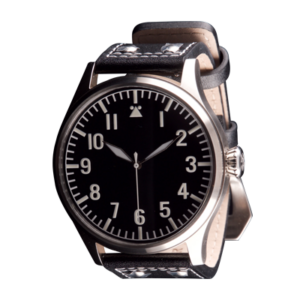B-UHR FW 190
295,00 €
model watch, stainless steel, brand new in box + warranty card!
Description
CASE: a stainless steel polished case, 42 mm
MOVEMENT: 17 jewels manual wind
CROWN: stainless steel oversized crown
DIAL: Black matte dial
HANDS: Hour hand Superluminova C3, minute hand Superluminova C3, second hand white with Superluminova C3
CASEBACK: glass
GLASS: antireflective
BAND: extra thick heavy duty stitched leather band
BUCKLE: polished stainless steel buckle
Focke-Wulf 190
The Focke-Wulf Fw 190 Würger (English: Shrike) is a German single-seat, single-engine fighter aircraft designed by Kurt Tank in the late 1930s and widely used during World War II. Along with its well-known counterpart, the Messerschmitt Bf 109, the Fw 190 became the backbone of the Luftwaffe’s Jagdwaffe (Fighter Force). The twin-row BMW 801 radial engine that powered most operational versions enabled the Fw 190 to lift larger loads than the Bf 109, allowing its use as a day fighter, fighter-bomber, ground-attack aircraft and, to a lesser degree, night fighter.
The Fw 190A started flying operationally over France in August 1941, and quickly proved superior in all but turn radius to the Royal Air Force’s main front-line fighter, the Spitfire Mk. V,[3] especially at low and medium altitudes. The 190 maintained superiority over Allied fighters until the introduction of the improved Spitfire Mk. IX.[4] In November/December 1942, the Fw 190 made its air combat debut on the Eastern Front, finding much success in fighter wings and specialised ground attack units called Schlachtgeschwader (Battle Wings or Strike Wings) from October 1943 onwards. In the opinion of German pilots who flew both the Bf 109 and the Fw 190, the latter provided increased firepower and, at low to medium altitude, manoeuvrability.
The Fw 190A series’ performance decreased at high altitudes (usually 6,000 m (20,000 ft) and above), which reduced its effectiveness as a high-altitude interceptor. From the Fw 190’s inception, there had been ongoing efforts to address this with a turbosupercharged BMW 801 in the B model, the C model with the Daimler-Benz DB 603, and the D model with the Junkers Jumo 213. Problems with the turbos meant only the D model would see service, entering service in September 1944. While these “long nose” versions gave them parity with Allied opponents, it arrived far too late in the war to have any real effect.
The Fw 190 was well-liked by its pilots. Some of the Luftwaffe’s most successful fighter aces claimed a great many of their kills while flying it, including Otto Kittel, Walter Nowotny and Erich Rudorffer.

